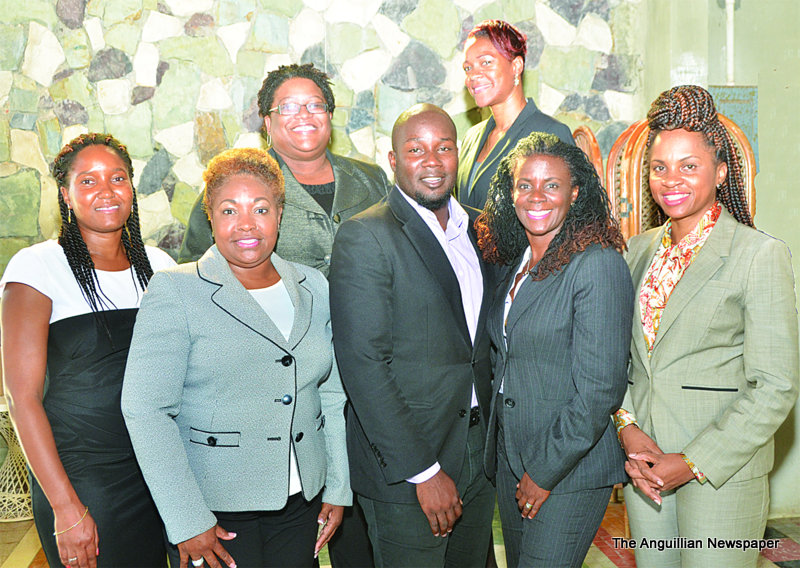Anguilla has long entered an important period of its social and economic development which demands careful and sensitive handling. This is an essential requirement that all of our politicians, in and out of government, the business community, and our people in general, must pay particular attention to. Put simply, and in colloquial terms, if we fail in this effort, we could be ‘destroying the goose that laid the golden egg’ resulting in valuable investors fleeing Anguilla with their investments.
We hasten to point out, however, that this is not to say that Anguilla must accept whatever comes our way and not to put the best interest of our people and the welfare of our island first. Everybody would perhaps readily admit that both past and present political leaders in Anguilla, and their advisers, have over the years made some very silly mistakes or misjudgements for which we are still paying a price in one form or another. What we cannot afford to do, now, is to continue to make ill-advised and hasty decisions which can sadly backfire and probably negatively impact future opportunities for investment, and project development, so badly needed in Anguilla at present.
Unfortunately, one of the projects caught up in a myriad of difficulties is Cap Juluca. This is a great pity given the fact that, for many years, it was proudly dubbed the “flagship of the tourist industry in Anguilla”; has received, and continues to attract, rave reviews from some of the world’s most respected journals, public relations companies, the travel trade press and, of course, even the most discriminating traveller. In addition, the resort is located on one of the world’s best beaches and, unlike other such properties in Anguilla, it occupies a considerably large and prime acreage of land owned by the Government and people of the island.
At such, Cap Juluca may be regarded as a proud partnership between the foreign investor(s) and Anguilla, and should be operating at the highest level of cooperation and respect, as well as contributing to the island’s economy through taxes, other fees, tourist arrivals and employment opportunities for Anguillians. In fact, in most of those areas, this has been the case despite a series of ownership and legal issues that have plagued the property for years. It is unfortunate that, for all kinds of reasons offered, these challenges still persist today when some of us might have believed that the woes were all over; that there would be both a period of settling down and a period of further development. But, alas, this is not the case!
The ownership feuds are continuing and, except for threats of “buying out” owners and forcefully “acquiring the property”, it is not clear what actual steps or remedies the Government of Chief Minister Hubert Hughes is pursuing to amicably resolve the untenable situation. It is unclear what prevented the Government from fulfilling its previous threat to acquire the property, but this time the Chief Minister has been careful to say that he is waiting to get the permission of the British Government to “buy out” the owners and perhaps to approve bank loans for that purpose. So far, the position of the British Government on this matter is publicly unknown.
What is a fact is that the Government has the power under the Acquisition Act to compulsorily acquire any property in the public interest, but the Government must have the money upfront to pay the owners. Further, that payment is believed to be payable at a level that is both fair and satisfactory to the owners, and in accordance with current valuations. One of the negative things about compulsory acquisitions of properties, especially when foreign investment is involved, is that such an undertaking can send negative and scary signals to investors; drive them and other prospective developers away; and engender bad publicity for the government and territory taking that course of action. Caution must therefore be taken at all times on any decision for acquisition.
What appears to be an important need is for all parties to come together at the bargaining table to thrash out the issues involved and to arrive at an amicable and a lasting solution. This should not be an impossible task to accomplish. It certainly does not help the situation when the Chief Minister says that the Treasury has two million dollars in its coffers from taxes and other fees from Cap Juluca but the Government is refusing to spend it, while there are urgent needs among the people, as well as in government itself. It also does not help for a war of words to be played out in the media by the investment partners rather than in the judicial system. By doing so, the property is attracting bad publicity which is certainly not in its best interest, or that of Anguilla, or the tourism industry. There is an undeniable need for all concerned to get to the bargaining table at once and to avoid what appears, in some cases, as mere personal vendettas.
Our political leaders, on both sides of the divide, as well as credible and influential persons in the community, need to get together to solve not only the thorny Cap Juluca issue, but all the other unfortunate issues that negatively impact our society, its progress and prosperity. We all must also be careful about the political approaches and decisions we embark on, cognisant of the fact that bad politics, a lack of goodwill and cooperation, and other unnecessary stumbling blocks, should be kept out of investment and development in Anguilla.








